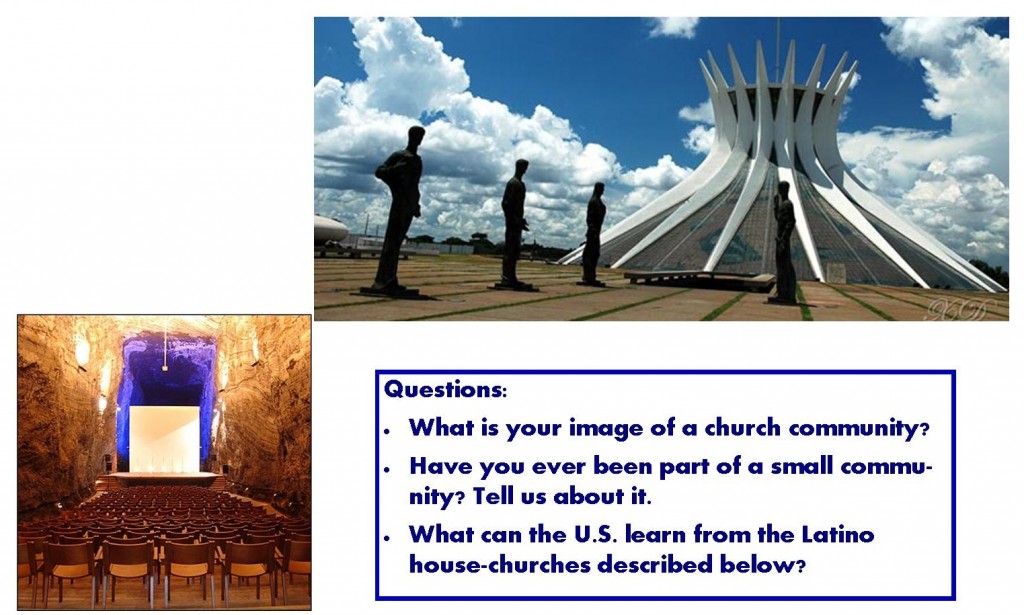

|
Letter from Guatemala (based on interviews and field observations) Dear U.S. friend, Our pastor believes that the church should go to the people rather than wait for the people to come to church. This is why we have neighborhood Masses and local churches. Twice a week our pastor says Mass in the open air, or about once a month in every parish district, each time in a different place, a street corner or alley, in a court yard or between apartment buildings, because the purpose is to reach different people each time. At such Masses, people don’t wait the arrival of the priest to start singing, and one can hear the singing going on from one or two street blocks away. The altar has been set up under an elevated tent, in case of rain, and many plastic stools put in place for the assembly. The pace of the Mass is leisurely. There is no choir as everybody sings, but there may be guitar music and a singing leader. The homily may be twice as long as on an average Sunday: it is more like a conversation or dialogue than the customary monologue. Through the Eucharistic prayer, the assembly is invited to join in various ways. The priests knows the prayers by heart, the people know the songs from memory, and all sing and pray from the heart. The Eucharist ends with the kiss of peace, people moving from person to person while the singing continues. These greetings mark the beginning of the party with sandwiches and soft drinks that may last half an hour, full of laughter and good humor. It is a true community Mass: the priest just arrives, as all the preparations in the open air are ready, and the assembly is already singing. All are welcome, the single mothers, the divorced and remarried, the cohabiting couples, and the religiously indifferent but curious Catholics and non-Catholics. It is a local image of the universal church of Christ. Let me also tell you about our house-churches. There are scores of them in many parishes. My house-church consists of a dozen members. We meet on Friday evenings from 7 to 9 every week. We are very flexible with time; if you are early, this gives you an opportunity to chat, or to chat more at the end, if you want to stay longer. After a while we start singing. Most people know the songs. After the singing we pray. It is usually the coordinator who improvises a prayer, and after that everybody else may improvise a prayer. It is a kind of collective endeavor: you always learn and you always improve, especially with a different coordinator every year (because coordinators are elected every year). Then comes a bible reading; most people bring their own bible. There is always some kind of homily, the coordinator speaking first and everybody else adding their comments. We may also take a moment of silent reflection, followed by sharing; all of this is more or less spontaneous. It is always interesting to see how other people understand a given text: diversity of interpretations is more enlightening than a monologue sermon before a silent audience. The most memorable part of the evening is faith sharing. We share how we spent the week, the good and the bad, the joys and the special needs, the sorrows or the causes for celebration. It’s sharing for mutual help. This is the part of the meeting that is most important because then we get to know each others as a family. Some people say nothing for weeks, and that’s fine; we offer comfort, not therapy. I remember things people said years ago, and it made me richer. The Friday evening is the highlight of my week. |